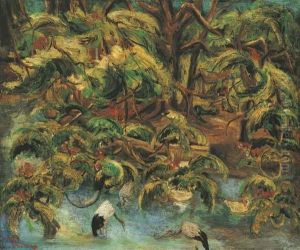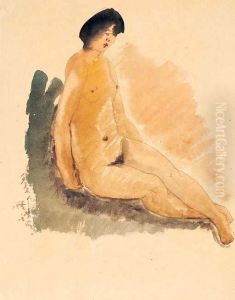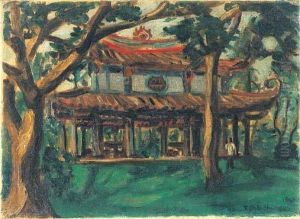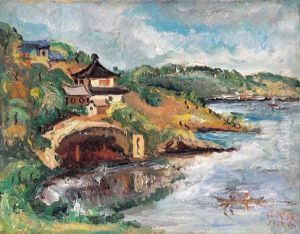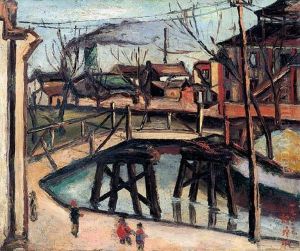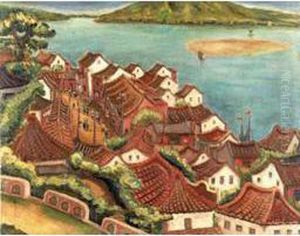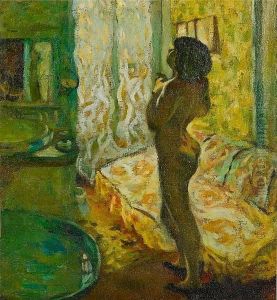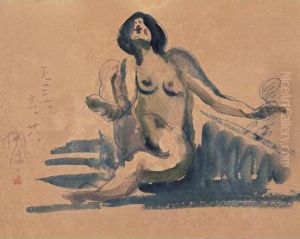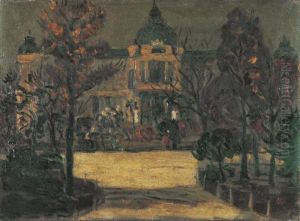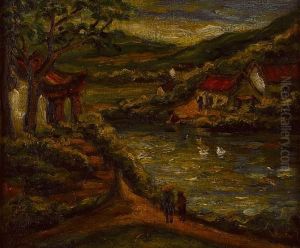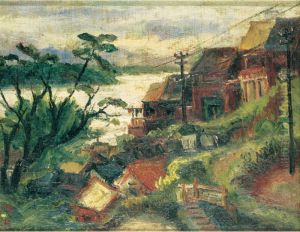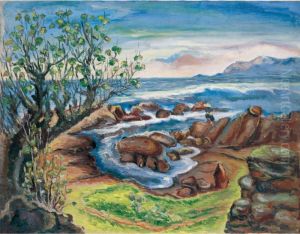Ch'En Ch'Eng-Po Chen Chengbo Paintings
Chen Chengbo, also known as Chen Cheng-Po, was a prominent Chinese painter, educator, and art activist. Born in 1895 in Anxi, Fujian Province, China, he was a leading figure in the development of modern Chinese painting. Chen's work was notable for its combination of traditional Chinese techniques with Western painting methods, which he acquired during his studies in Japan at the Tokyo School of Fine Arts, where he graduated in 1923.
Chen Chengbo's painting style was characterized by his expressive use of color and a keen sense of composition, bringing to life scenes of landscapes, cityscapes, and people. After returning to China, he became an influential figure in the art community, promoting fine arts education and participating in various exhibitions. In 1926, he helped establish the Taiwan Fine Arts Exhibition, which was pivotal in nurturing artistic talent on the island.
Throughout his career, Chen's work received considerable acclaim. He was known for his dedication to capturing the essence of his Chinese heritage while also embracing new artistic trends of the time. His landscapes, in particular, reflected a blend of Eastern and Western aesthetics, and his depictions of cities like Shanghai and Taipei captured the changing face of urban China in the early 20th century.
Tragically, Chen's life and career were cut short during the February 28 Incident in 1947, when he was executed by the Kuomintang government in Taiwan. This happened during a period of political upheaval and anti-government uprising, and his death was part of a broader crackdown on suspected dissidents. Despite his untimely death, Chen Chengbo's artistic legacy lived on, and today he is remembered as a significant figure in the history of Chinese modern art.
